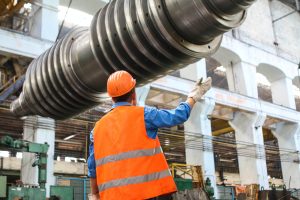Community
Why Workplace Diversity is important in the Construction Industry?
Having a diverse workforce means recognising and embracing employees from different backgrounds.
Known to be an important asset, it appreciates the individual strengths of each employee and the valuable contribution they bring in.
By valuing and respecting our differences we can foster a productive work environment that promotes fairness and inclusivity.
In this blog post we will delve into the significance of diversity in the construction industry and how it serves as a catalyst for equality and social progress?
Why an inclusive workplace is necessary?

An inclusive work environment promotes rights and opportunities for all employees regardless of their gender, race, age, ethnicity, physical abilities or religious beliefs.
In Australia, it’s mandatory for workplaces to provide opportunities to their employees and maintain a workplace that’s free from discrimination and harassment.
Employers have a responsibility to implement measures that address employment disadvantages and discrimination to promote workplace diversity.
This includes valuing diversity in the workplace and ensuring that there is no room, for harassment, discrimination or bullying.
Improved Decision Making
Complex challenges often arise in construction projects necessitating team decision making at certain stages.
Having a team with diverse background can enhance this process.
Each team member brings their experiences, knowledge and skills enabling a more comprehensive assessment of potential risks and opportunities at hand.
The varied viewpoints within the team aid in identifying risks considering solutions and making well informed decisions.
Encouraging an approach that embraces diversity promotes thinking and ensures that decisions are not solely influenced by personal biases or limited perspectives.
An additional advantage of having a diverse workforce is the prevention of groupthink.
Groupthink occurs when individuals within a team conform to a way of thinking while suppressing dissenting opinions or alternative viewpoints. This can impede the decision-making process resulting in suboptimal outcomes.
Increased Productivity and Efficiency
Numerous studies consistently demonstrate that diverse teams across all industries tend to exhibit levels of productivity and efficiency.
This holds true in the construction industry where diversity can significantly impact project success.
Feeling Valued and Included
When employees feel valued and included they are empowered to contribute their efforts and collaborate effectively together.
Having workforce with rich industry background, perspectives and experiences is essential for fostering innovation.
When different viewpoints challenge the status quo, it encourages problem solving.
Additionally creating a work environment where everyone is treated with respect and fairness fosters a sense of belonging. When employees feel comfortable being themselves they are more inclined to collaborate honestly which leads to communication stronger teamwork and ultimately increased productivity.
A diverse skill set enables task allocation and enhances problem solving abilities.
For example a team that includes members specialising in construction techniques, management strategies or sustainability practices can leverage their knowledge and skills to gain an understanding of the projects requirements. This broader perspective facilitates decision making processes improves problem solving capabilities and boost productivity levels.
Furthermore, considering that construction companies often serve clients from backgrounds and income levels having team members who come from lower income backgrounds can be advantageous. These individuals may understand cost saving measures or alternative building materials that can help keep project costs within budget.
Construction companies also need to consider and navigate the differences that may be important, to their clients. For instance, when working on projects involving clients from backgrounds having team members who are knowledgeable about the customs, traditions and aesthetics of those cultures can be extremely valuable. This ensures that the project reflects the vision and values of the clients.
Is Diversity a Catalyst for Equality and Social Progress?
The construction industry is often viewed as male dominated and lacking diversity in terms of representation from backgrounds.
However, promoting diversity goes beyond meeting quotas or reaping business benefits. It’s a step towards fostering equality and driving social progress.
By promoting diversity and inclusion, construction companies contribute to creating a fair society for individuals belonging to underrepresented groups.
This entails breaking down barriers and challenging stereotypes. Embracing diversity in construction can also serve as an inspiration for change not within the industry but also throughout society.
The commitment to opportunities means eliminating any obstacles that may hinder individuals from accessing the construction sector. This includes combating challenging industry stereotypes or biases and prejudices that certain roles are limited to specific genders or ethnicities.
There are obstacles that people encounter such as not having access to training and education facing bias during hiring and promotion processes and lacking proper mentoring and support systems.
It’s detrimental to challenge stereotypes that perpetuate inequality and restrict opportunities because this discourages individuals from choosing a career in construction.
Companies in the construction industry have a role in challenging these stereotypes by showcasing the achievements and triumphs of individuals within the field.
Additionally highlighting role models and sharing success stories can serve as inspiration for others, from groups to pursue careers in construction.